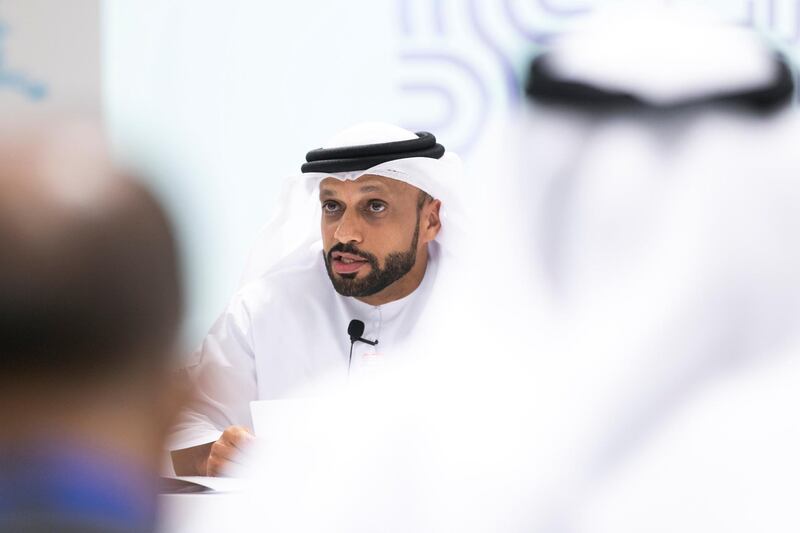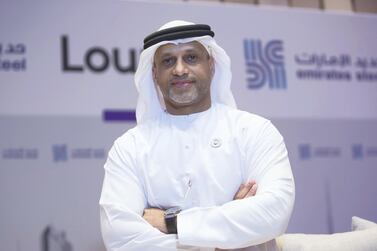The escalating trade war between the world’s two biggest economies is denting regional and global demand for steel, forcing the UAE’s Emirates Steel to rationalise its cost base to offset the impact of slower sales, its chief executive said.
"It's difficult, challenging, and there is no sell, you see a trend of slowing demand not only in the region but also the whole world," Saeed Al Remeithi told The National.
"Also from the raw materials point of view, prices are going up,” he added.
Emirates Steel is paring costs in "day-to-day" activities said Mr Al Remeithi, ruling out any reductions that could affect its workforce.
“In terms of how we charge scrap, how we do the internal processes, how we reduce costs and supply chain for example, but when the business is slowing down, the company is more focused on cost reductions, but that doesn’t mean we’re laying off people,” he said.
Emirates Steel is one of the UAE’s largest non-oil companies and is one of the portfolio companies of Abu Dhabi industrial holding company Senaat. The steel sector has faced a challenging year globally following the imposition of a 25 per cent levy by the US administration under President Donald Trump last year on all imported steel into the country. The measure was meant to counter what he called “dumping” of the metal by manufacturers such as China.
The White House later relaxed restrictions against Mexico and Canada, parties to the North American Free Trade Agreement in May. Global demand for steel is projected to grow by 1.3 per cent in 2019, before moderating to 0.9 per cent growth due to cooling economic growth, according to the World Steel Association.
Emirates Steel, which planned to increase sales to the US by 5 per cent this year, is on track to meet that target, said Mr Al Remeithi.
"That’s definitely there, it won’t be an issue. The demand there is okay. I’m not talking about prices but the demand is good,” he said.
The US imports around 26,000 tonnes of steel sections from the UAE manufacturer on an annual basis.
About 80 per cent of Emirates Steel’s output is absorbed domestically, and the company is looking to enter new markets, such as Latin America, to offset global slowdown in demand.
Regional expansion into Iraq and Syria has been challenging, said Mr Al Remeithi, due to competition from other key steel manufacturers such as Turkey and Iran that are better positioned geographically to meet demand.
"We try to enter Iraq, and Syria is not really picking up but they’re always in our radar,” he said.
Emirates Steel’s production is set to remain at 3.1 million tonnes for 2019, the same level registered last year, said Mr Al Remeithi.
The company, which finalised a $400 million (Dh1.46 billion) loan refinancing deal last year to replace its existing outstanding secured debt, has no plans to issue a bond or a sukuk this year, he added.








